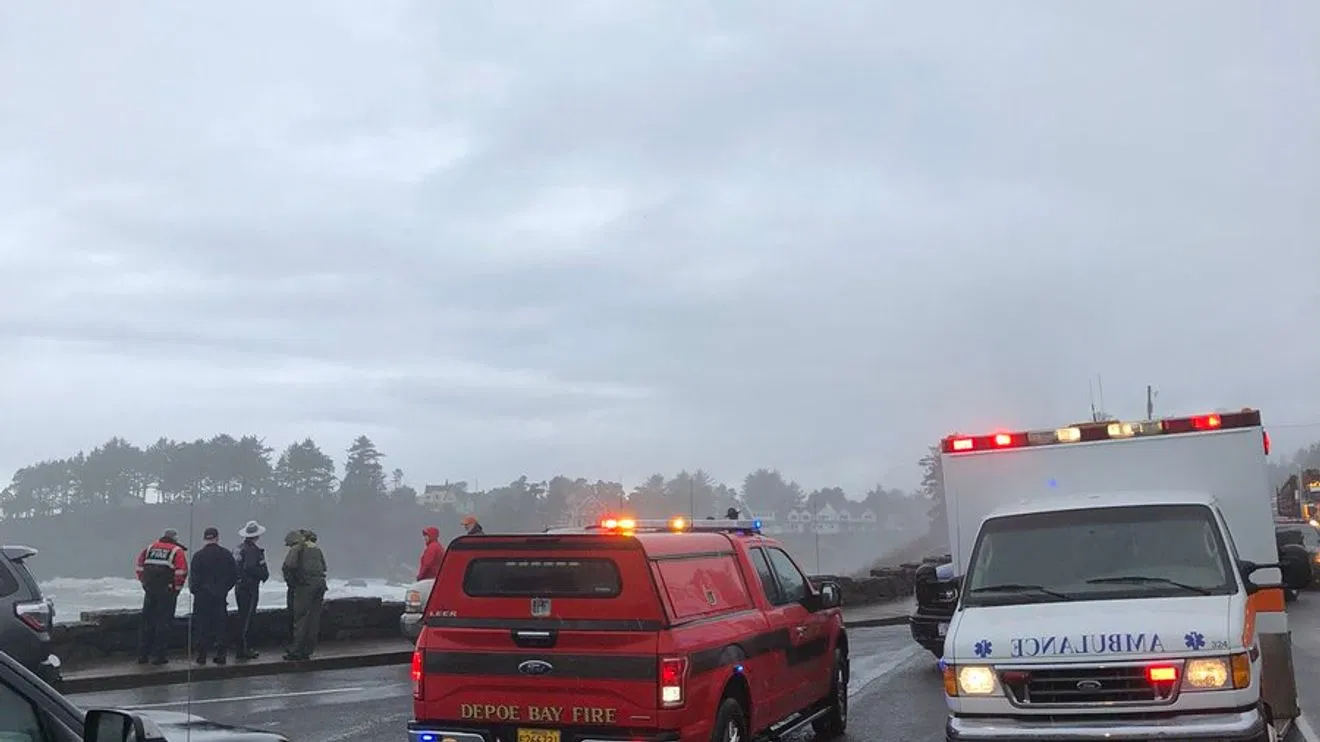 It’s that time of year again: Seal pups are appearing on beaches along the Oregon coast and beachgoers are asked to stifle their desire to assist these animals in some way, and instead give them space. For those familiar with the exquisite cuteness of a newborn pup, the advice can be hard to swallow. But it’s for the best, for people and wildlife alike.
It’s that time of year again: Seal pups are appearing on beaches along the Oregon coast and beachgoers are asked to stifle their desire to assist these animals in some way, and instead give them space. For those familiar with the exquisite cuteness of a newborn pup, the advice can be hard to swallow. But it’s for the best, for people and wildlife alike.
Every spring, harbor seals give birth to pups on secluded beaches or reefs up and down the Pacific coast. The pups are born ready to swim but cannot tread water for long; they need ample time on shore to rest and stay warm, and can remain there for days while their mothers forage at sea. Concerned observers often report “abandoned” seal pups on the beach, not realizing that the mother might be foraging nearby, or swimming just offshore to maintain distance from curious humans and their dogs.
“This is a perennial springtime issue for us all,” said Jim Rice, Stranding Coordinator at the Oregon Marine Mammal Stranding Network. “It’s helpful to remind people that it’s normal for pups to come ashore to rest, that their mothers often leave them unattended while they forage for food, and that interfering with this natural process is not only illegal but will likely be very detrimental to the pup.”
In other words, humans approaching or otherwise trying to “help” these unattended pups may inadvertently cause them harm, as the presence of people may deter mother seals from coming ashore to nurse. Seal pups are vulnerable and they may yank at our heartstrings, but we often jeopardize matters further by intervening in their affairs.
Rice also pointed out that, being wild animals, harbor seals face myriad challenges to reaching maturity, and pup mortality is a natural check on robust seal populations in our region. Studies estimate that as much as 50 percent of harbor seal pups born in a given year do not reach their first birthday.
Another reason to give seals a wide berth is the possible threat of disease, said Laura Todd, Field Supervisor for the U.S. Fish and Wildlife Service office in Newport. “Seals and sea lions can harbor the bacteria responsible for leptospirosis, a disease that affects humans and dogs and causes damage to the liver, kidneys and other organs.” The bacteria are present in the infected animal’s fluids, including urine, and can easily pass into surrounding water or wet sand.
In general, the Oregon Coast Aquarium is committed to the rescue and rehabilitation of indigenous wildlife when they are deemed injured by human interference. But in the case of harbor seal pups, humans should not be approaching these animals in the first place, and the Aquarium advises the public to obey marine mammal protection laws and let nature take its course.
“Concerned observers itching to help can call the Oregon Marine Mammal Stranding Network Hotline [541-270-6830] if a pup is spotted,” said Jim Burke, Director of Animal Husbandry at the Oregon Coast Aquarium. “Their staff can post courtesy signs near the seal to inform other beachgoers of the situation.” Stern warnings aside, finding a harbor seal pup on the beach can be an enchanting and poignant experience. To keep these creatures safe, watch with binoculars or take pictures from afar—let the seals take care of themselves.
The Oregon Coast Aquarium is dedicated to the highest quality aquatic and marine science programs for recreation and education so that the public better understands, cherishes, and conserves the world’s natural marine and coastal resources. An accredited Association of Zoos & Aquariums institution, this 501(c)3 non-profit organization is ranked as one of the top 10 aquariums in the U.S. Visit us at 2820 S.E. Ferry Slip Rd., Newport, OR. www.aquarium.org, 541-867-3474. Follow us on Facebook.com/OregonCoastAquarium, or Twitter.com/OrCoastAquarium for the latest updates.
Information provided by Oregon Coast Aquarium
